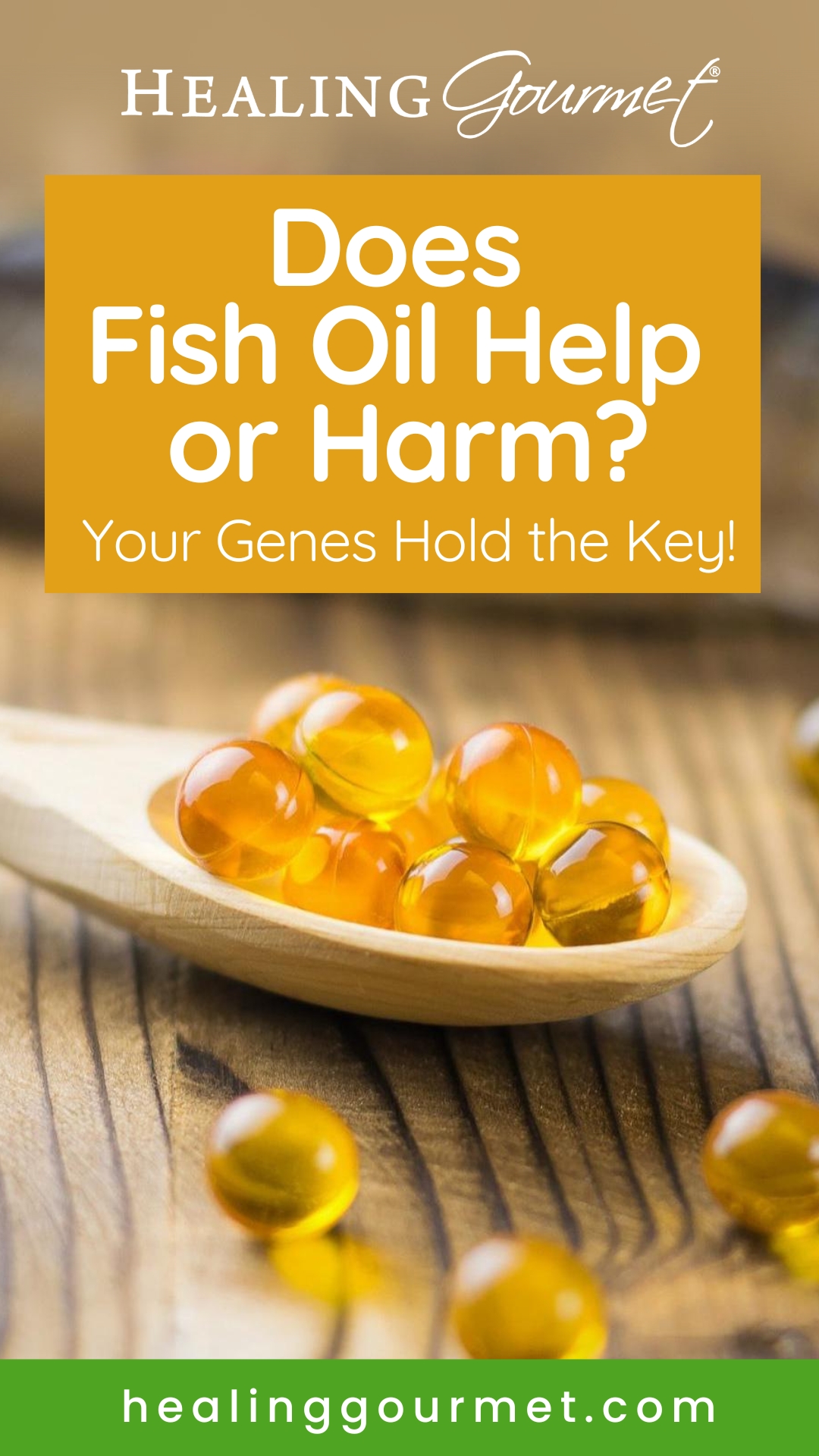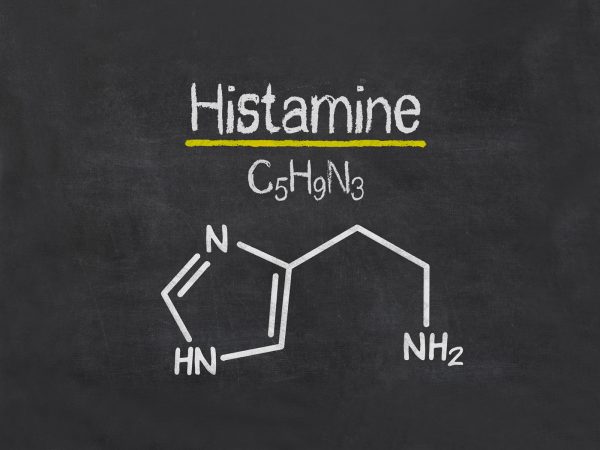Should You Take Fish Oil? Check THIS Gene
For years we have heard that eating seafood is good for the heart. And we know that fish-eating populations tend to have lower rates of heart disease and live longer lives.
However, multiple studies show mixed results when it comes to fish oil’s ability to reduce the risk of cardiovascular disease.
New research published at the University of Georgia may shed some light on why…
Will Fish Oil Raise or Lower Triglycerides? It Depends on Your Genes
Using a data sample of 70,000 individuals from UK Biobank – a large-scale cohort study collecting genetic and health information from half a million participants – researchers divided the sample into two groups:
Those taking fish oil supplements; those not taking fish oil supplements.
The researchers then performed a genome-wide scan for each group, comparing 8 million genetic variants. After over 64 million tests were run, they discovered a significant variant at GJB2.
- Individuals with the AG genotype of GJB2 who took fish oil decreased their triglycerides.
- However, those with the AA genotype who took with fish oil slightly increased their triglycerides.
(Note: Your DNA report may not show that specific genetic variant yet, however, you can find it in download OF the raw data. The ID for the variant is rs112803755 (A>G).
Kaixiong Ye, assistant professor of genetics, and one of the lead researchers in the study said:
“What we found is that fish oil supplementation is not good for everyone; it depends on your genotype. If you have a specific genetic background, then fish oil supplementation will help lower your triglycerides. But if you do not have that right genotype, taking a fish oil supplement actually increases your triglycerides.”
Now you may be wondering: What about eating fish? Could eating wild fish like salmon, sardines, halibut and mackerel have similar “fishy” results based on my genetics?
While these researchers did not analyze fish-eaters (only fish oil takers), another group of researchers recently did…
Fresh Fish vs. Fish Oil Supplements
A randomized control trial (RCT) – the gold standard of research studies – published in the journal Nutrition & Diabetes set out to determine if eating fresh fish versus taking fish oil would have different effects on lipids.
106 patients with hyperlipidemia were randomly divided into two groups. One group received 2 grams of omega-3 capsules daily for a period of 8 weeks. The other group received 250 grams of trout fish twice weekly (for dinner and lunch) for the same time period.
Researchers then compared lipid profiled of the two groups. Here’s what they discovered:
- In both groups, total cholesterol, non-HDL cholesterol, triglyceride (TG) levels, and total cholesterol/HDL ratio were reduced significantly following the treatment; however, dietary-fish intake had a more pronounced effect.
- HDL level was increased in both groups with a higher effect in dietary fish group.
- Atherogenic (TG/HDL ratio) and LDL/HDL ratio indices did not change in fish oil group, however were reduced significantly by fresh fish consumption.
- LDL level was increased in the supplementation group, while it was significantly reduced in the dietary-fish group.
In all parameters measured, the benefits of consuming fresh fish outweighed the benefits of taking fish oil. And in some cases, the fish oil had a paradoxical effect on lipids.
The researchers concluded:
“Consumption of fresh fish seems to be superior in positively modifying the lipid profiles which may have important translations in the occurrence of cardiovascular events.”
Whole Foods Trump Supplements (Every Time)
We are learning a lot about how our genetics shape our perfect diet. We’re also discovering that what is a “safe” food or supplement for some… may pose harm to others.
To get the heart-healthy benefits of omega-3 fatty acids, choose them in their whole food form by enjoying wild sustainable salmon, halibut, sardines, mackerel, shrimp and scallops.
As a person interested in optimal nutrition, you already know that omega-3 fatty acids are vital to your health. They boost brainpower and protect your heart. They improve immunity and increase lung function. They can alleviate depression and improve critical thinking. They can also tame inflammation and quell oxidation.
In fact, there are more positive, peer-reviewed studies about the benefits of omega-3 fatty acids than any other food or nutrient – by far. You would be hard pressed to find a single health condition not improved by optimal omega-3 levels in the body.
However, there are quite a number of conflicting studies, especially when it comes to supplementing with omega-3 fatty acids. For example, it is well established that eating seafood is good for the heart. And we know that fish-eating populations tend to have lower rates of heart disease and live longer lives.
However, there are a number of studies which show mixed results when it comes to fish oil supplements and the risk of cardiovascular disease.
And new research, published at the University of Georgia, sheds light on why this might be…
Does Fish Oil Raise or Lower Triglycerides? Depends on Your Genes…
Using a data sample of 70,000 individuals from a large-scale study, which collected genetic and health information from half a million participants, the University of Georgia researchers divided the sample into two groups:
The first group consisted of people taking fish oil supplements. The second group was made up of people who did not take fish oil supplements.
The researchers then performed a genome-wide scan for each group, comparing eight million genetic variants. After over 64 million tests were run, they discovered a significant variant in a gene called GJB2.
- Individuals with the AG genotype of GJB2 who took fish oil decreased their triglycerides.
- Those with the AA genotype who took with fish oil slightly increased their triglycerides.
(Note: Your DNA report may not show these specific genetic variants. However, you can find it in a download of the raw data. The ID for the variant is rs112803755 (A>G).
In a summary of the results, genetics professor and one of the lead researchers in the study, Kaixiong Ye said:
“What we found is that fish oil supplementation is not good for everyone. It depends on your genotype. If you have a specific genetic background, then fish oil supplementation will help lower your triglycerides. But if you do not have that genotype, taking a fish oil supplement actually increases your triglycerides.”
Of course, you are probably wondering: What about eating fish? Could eating wild salmon, sardines, halibut and mackerel cause similar “fishy” results, based on my genetics?
While these researchers did not analyze fish-eaters (only those taking fish oil supplements), another group of researchers recently did investigate this concern…
Fresh Fish vs. Fish Oil Supplements
A randomized control trial (RCT) – the gold standard of research studies – published in the journal Nutrition & Diabetes set out to determine if eating fresh fish versus taking fish oil would have different effects on lipids.
One hundred six patients with hyperlipidemia – a condition marked by high levels of fat in the blood, particularly cholesterol and triglycerides – were randomly divided into two groups. One group received two grams of omega-3 capsules daily for a period of eight weeks. The other group received 250 grams of trout fish twice weekly (for dinner and lunch) for the same time period.
The researchers then compared lipid profiled of the two groups. Here’s what they discovered:
- In both groups, total cholesterol, non-HDL cholesterol, triglyceride (TG) levels, and total cholesterol/HDL ratio were reduced significantly following the treatment. However, dietary-fish intake had a more pronounced effect.
- HDL level was increased in both groups with a higher effect in dietary fish group.
- Atherogenic ratios (Triglycerides:HDL and LDL:HDL) did not change in fish oil group. However, these indices were reduced significantly by fresh-fish consumption.
- LDL level was increased in the supplementation group and significantly reduced in the dietary-fish group.
Among all parameters, the benefits of consuming fresh fish outweighed the benefits of taking fish oil. And in some cases, the fish oil had a paradoxical effect on lipids.
The researchers concluded that:
“Consumption of fresh fish seems to be superior in positively modifying the lipid profiles which may have important translations in the occurrence of cardiovascular events.”
Whole Foods Trump Supplements (Every Time)
We are learning a lot about how our genetics shape our perfect diet. We’re also discovering that what is a “safe” food or supplement for some people may cause harm to others.
To get the greatest heart-healthy benefits of omega-3 fatty acids, choose them in their whole-food forms by enjoying wild sustainably-harvested salmon, halibut, sardines, mackerel, shrimp and scallops. In addition, grass-fed beef contains a higher ratio of omega-3’s than its grain-fed counterpart, so you can further optimize your omega ratio by choosing grass fed and pasture-raised meats.
And if you have high triglycerides, check your GJB2 variant before supplementing with fish oil.





Really I got clarification about fish consumption with fish oil take I need how to find out the geno type I am an Indian I will be thankful if you clarify the method of identification Thanks Thanks G Veerasamy Thanjavur Tamilnadu India